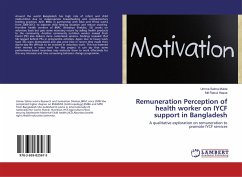Tuberculosis remains a public health problem of global proportions with approximately one-third of the population of the world infected, mostly in the developing world. Challenges continue to exist in the delivery of TB treatment in Kampala city, Uganda including limited successful adoption of WHO recommended Community-Based Directly Observed Treatment short-course strategy (CB-DOTS). TB patients social network and social support systems can influence treatment seeking in Kampala, Uganda under modified WHO approved CB-DOTS. In describing social networks and social support systems of TB patients seeking treatment in Kampala over the course of treatment, the study identified factors influencing TB patients choice of DOT strategy and compared social network characteristics between TB patients by DOT strategies. It further evaluates treatment outcomes among TB patients in relation to patients social network characteristics and DOT strategy. An anthropological implication of this study is that the nature and substance of social networks and support exchange during the treatment process shifts over time with important ramifications for ensuring appropriate care during longterm care.
Bitte wählen Sie Ihr Anliegen aus.
Rechnungen
Retourenschein anfordern
Bestellstatus
Storno








